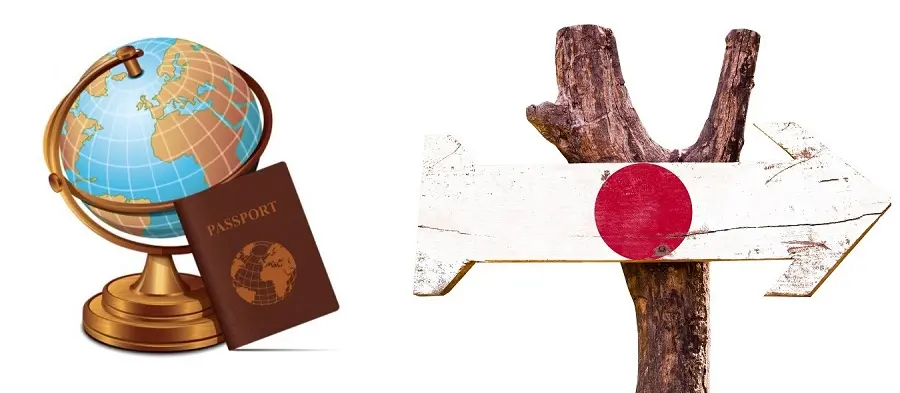Getting a Self-Sponsored Visa in Japan

A self-sponsored visa in Japan is for people who wish to live in Japan for freelancing work. This includes part-time work and not as a direct employee of a company in Japan.
There’s a saying among the international community in Japan that getting into Japan is hard, but staying in Japan is easy.
The challenging part of immigrating to Japan is the visa process. Even long-term residents still dread returning to immigration to resubmit their paperwork.
However, getting a Japanese work permit is a piece of cake if you are a highly skilled professional with a guaranteed job offer, such as a software engineer.
All the other normal Japanese visas can only be obtained through sponsorship.
These sponsorships can be from a spouse (Spouse Visa), school, or workplace to guarantee income. The sponsor needs to guarantee that your presence in Japan won’t financially burden the government in any way.
However, here is a way to self-sponsor your visa. It has become a more attractive option for those either in the process of starting a business or seeking more independence in their work environment. This is gaining importance as the “freelance economy” continues to expand.
In this article, we will discuss what is a self-sponsored work visa in Japan and how we apply for the same.
What is a Self-Sponsored Visa
Technically, there isn’t a category for a “self-sponsorship” on the visa application. It’s more like a valid work visa for a part-time employee or a sole proprietor.
Moreover, technically, one cannot call it self-sponsorship but co-sponsoring. You will ask what I mean by co-sponsoring the visa. Here you go:
Your regular employer sponsors any other work visa in Japan. Such a visa mandates the visa holder to be in the specific profession for which the visa was granted.
For example, if you get a visa as an Engineer in Japan, you cannot have your main income source as an artist. If your main source of income is from artistic activities, you need to get a Japanese artist visa.
However, if you go for a work visa with the co-sponsoring approach, you can earn income from various professions as a freelancer. In such a case, your main employer, with whom you will work as a contractor, needs to be a sponsor.
Please note that this visa sponsor can also be your main client.
In addition to the above, you must apply to immigration for permission to engage in other work activities. These other work activities can differ from those permitted by the residence status. This enables you to earn income from various activities as a part-time freelancer.
Many people who self-sponsor their visas often work part-time as teachers, translators, or even in hotels. These people can supplement their income with other pursuits.
Your part-time job still sponsors you while also being relieved of the responsibility of paying your health insurance, pension, or taxes on your health.
Documents Needed to Self-Sponsor
Applying to self-sponsor is a relatively simple process. However, getting the necessary paperwork could take some time, depending on your current residence status and availability.
You can renew your visa two months before the expiration date, so the sooner you turn in the forms, the better.
Please submit copies of your original documents, not the originals, to the immigration office. Submitting originals is risky if the documents are misplaced, and you do not get those back.
Of course, you need to submit the originals if specifically asked to do so.
1. Application
The first two pages need to be filled out with your personal information. Your sponsor company will also need to fill in the last few pages themselves, outlining their company’s details and the scope of the work you provide.
Be sure the application form is stamped with the company’s official seal inkan (印鑑) before submitting it.
You can find more details about filling out the visa Applications here, and you can download the visa application from this link.
2. Passport, Residency Photo, and Certifications
Along with your application, you’ll need to submit a copy of your passport, a current photo attached to the application, and any excess certifications you can submit to make your application strong.
Be sure to check the expiry date of your passport. You might be denied approval if you have less than six months left. Certifications for your application can include JLPT and other special skill qualifications that prove you can work in Japan.
3. Contracts from Current Employers
The contracts don’t have to be in Japanese but should outline the type of work you provide and your income, either in an hourly wage or as a projected salary.
4. Tax Withholding Slips and Tax Returns
Your tax withholding slips gensen choshu hyo (源泉徴収票) can be obtained from your employers or local ward office. If you have to obtain these forms for your city ward office, you’ll likely have to pay a fee of 300-500 Japanese yen.
In addition, you’ll need to provide two years of proof that you’ve paid and filed your taxes. If you cannot provide two years of proof, you’ll need to write a letter to the immigration office detailing why.
5. Proof of Retirement
The proof of retirement or “taishoku shomeisho (退職証明書)” is a document explaining that you had a previous job to show your experience. The document can be in English or Japanese.
Most companies provide this relieving cum experience letter as a standard process. However, if you did not receive it, please ensure to get it before applying for the visa.
6. Application for Permission to Engage in Activities Outside of Your Visa Status
As mentioned earlier, you must fill out an application to get permission to earn income from activities other than the main activity as per your “status of residence.”
You can find more information about the process on the Japanese Ministry of Justice site here and download the application form from this link.
If you’re submitting the above form, you’ll also need to sign a letter permitting you to engage in other activities outside of work.
7. Sole Proprietorship Form
This form is only necessary if you are starting your own business.
If you have individual contacts with clients like private students or private consulting, you’d need to present those contracts as proof of income.
You can get the sole proprietorship form kojin jigyou nushi (個人事業主) from your local tax office and fill it out to submit it for the visa.
8. National Revenue Stamp
Once your application has been approved, you’ll be asked to purchase a revenue stamp before receiving your residence card.
This revenue stamp is called shuunyu inshi (収入印紙) in Japanese. You can buy the revenue stamps at the post office or a convenience store. In addition, you can download the Certificate of Payment Fee Form here.
Guaranteeing Income
Self-sponsoring your visa can be risky because relying primarily on earning through freelancing means that your income might be low throughout the year.
The average yearly salary of Japanese workers in 2019 was ¥3,077,000 or about ¥256,416 per month.
There is not any standard salary requirement to gain approval. However, it is recommended that you should be able to earn a minimum of ¥200,000 yen a month. Please note that JPY 200,000 is the minimum income for living in a small Japanese apartment while providing basic necessities.
Should I Self-Sponsor Visa
There are many benefits to self-sponsoring your visa. Since such people usually work part-time and do their freelancing in their own time, they might have more free time than the average office worker.
Secondly, being able to freelance and determine your work conditions might result in a higher income than a full-time worker.
Third, freelancers can take on as many contracts as they can balance without going through rigid workplace restrictions.
Self-sponsorship is a great stepping stone for individuals interested in starting their own business in Japan.
Entrepreneurs must provide proof of capital before establishing themselves in Japan, except for the Japanese startup visa.
Self-sponsorship could be a way to provide a bit of social freedom to build connections before completely committing to your new business venture.
On the other hand, self-sponsorship doesn’t come without risks. Since you’re the sole proprietor, you’ll be responsible for filing your taxes. Moreover, you must pay for your pension, Japanese health insurance, and any other paperwork your sponsoring company would typically pay.
Self-sponsorship of your Japanese work visa, or co-sponsorship, might not be ideal for individuals with either low Japanese or self-management skills. In addition, freelancing isn’t guaranteed income, leading to moments where you might be low for some months.
There are many avenues available to work in Japan besides the traditional office job or ALT (Assistant Language Teacher) role, and self-sponsorship of your Japanese visa is a great option for those with a more entrepreneurial spirit when it comes to working.


Jamila Brown is a 5-year veteran in Japan working in the education and business sector. Jamila is currently transitioning into the digital marketing world in Japan. In her free time, she enjoys traveling and writing about the culture in Japan.

